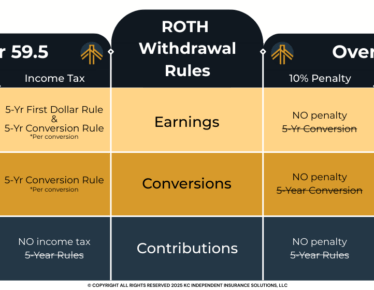Where Dave Ramsey Missed the Mark on Fixed Indexed Annuities
With us, transparency is everything. So when we hear public figures like Dave Ramsey mischaracterize fixed indexed annuities (FIAs), we feel it’s essential to step in and clarify the facts, for your sake.
Recently, Dave claimed that FIAs come with guaranteed returns of 5–6%, charge double the fees of mutual funds, and pay advisors commissions that are four times higher than those of other investment products. While we respect a lot of the advice Dave offers, in this case, we believe it’s essential to explain what’s true, what’s misleading, and what you need to know when considering these products.
Here’s What’s True About Fixed Index Annuities:
Fixed indexed annuities do offer a floor, meaning your principal is protected, or you won’t lose money if the market goes down. That’s part of the appeal: downside protection.
Here’s Where Dave Got It Wrong:
The floor isn’t a 5–6% guaranteed return. In most modern FIAs, the floor is 0%, which means your account won’t lose value in a bad year, but it also might not gain anything either. That’s a far cry from a guaranteed positive return.
Now, you may see some fixed annuities (not indexed) offering a fixed interest rate more in line with 1–3% annually. But when it comes to FIAs, you earn index-linked interest, based on how an index (like the S&P 500) performs, but without actually being invested in it.
So, How Do You Earn Money in an FIA?
Think of it this way: your money is held in the insurance company’s general account, which is usually invested conservatively (typically 70–80% in bonds). Then, they use a portion of their returns to buy options tied to the index. If the index performs well, you get a credit to your account based on a cap or participation rate, not the full market return, but a share of the upside.
If the index performs poorly, you get 0%, but no loss to your principal.
Let’s Talk Fees
Here’s a big misconception: many FIAs have no annual fees at all—unless you choose optional riders (like a lifetime income benefit). And even then, the typical rider fee is about 1%, which is disclosed upfront.
Compare that to traditional investment accounts, which often charge 1–1.5% per year in ongoing advisory fees. Over a 20–30-year retirement horizon, those fees add up significantly, far more than the one-time commission built into an annuity contract.
Dave also mentioned advisor commissions being 4X higher with annuities. But what he left out is that annuity commissions are paid once, usually around 2–6% of the premium; meanwhile, annual advisory fees compound year after year. Over time, the math often favors the annuity when appropriately structured.
The Bottom Line
FIAs are not investments in the traditional sense—they’re insurance contracts, designed for principal protection with some market-linked growth potential. They can play an important role in retirement planning, particularly if your goal is to preserve capital, reduce risk, and secure lifetime income.
Now, we don’t recommend all FIAs—some have low caps and restrictive terms that don’t serve clients well. But we know how to shop across dozens of carriers to find competitive products with high participation rates, low or no caps, and flexible rider options—if that’s what you need.
If you’ve been confused about how annuities work—or worried about fees—we should talk. Our role is to help you navigate these decisions based on what fits your retirement goals, not what sells the most headlines.
Contact Us Get in Touch
Have a question or feedback?
Fill out the form below, and we’ll respond promptly!

By providing your name and contact information, you are consenting to receive calls, text messages, and/or emails from a licensed insurance agent about Medicare Plans at the number provided. You agree that such calls and/or text messages may use an auto-dialer or robocall, even if you are on a government do-not-call registry. This agreement is not a condition of enrollment.
Not connected with or endorsed by the United States government or the federal Medicare program. This is a solicitation of insurance, and your response may generate communication from a licensed producer/agent.



